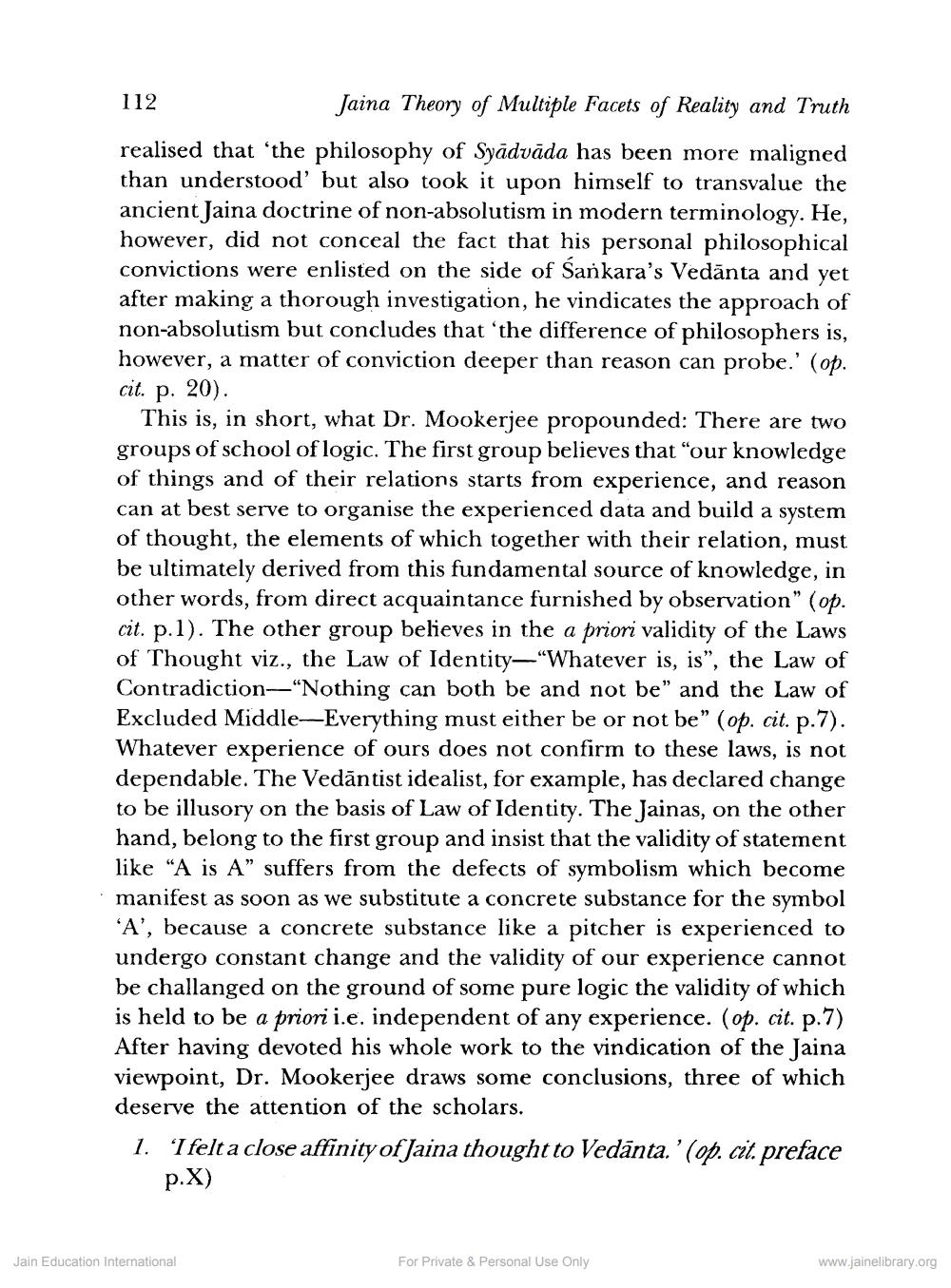________________
Jaina Theory of Multiple Facets of Reality and Truth
realised that 'the philosophy of Syādvāda has been more maligned than understood' but also took it upon himself to transvalue the ancient Jaina doctrine of non-absolutism in modern terminology. He, however, did not conceal the fact that his personal philosophical convictions were enlisted on the side of Sankara's Vedanta and yet after making a thorough investigation, he vindicates the approach of non-absolutism but concludes that 'the difference of philosophers is, however, a matter of conviction deeper than reason can probe.' (op. cit. p. 20).
This is, in short, what Dr. Mookerjee propounded: There are two groups of school of logic. The first group believes that "our knowledge of things and of their relations starts from experience, and reason can at best serve to organise the experienced data and build a system of thought, the elements of which together with their relation, must be ultimately derived from this fundamental source of knowledge, in other words, from direct acquaintance furnished by observation" (op. cit. p.1). The other group believes in the a priori validity of the Laws of Thought viz., the Law of Identity-"Whatever is, is", the Law of Contradiction-"Nothing can both be and not be" and the Law of Excluded Middle-Everything must either be or not be" (op. cit. p.7). Whatever experience of ours does not confirm to these laws, is not dependable. The Vedantist idealist, for example, has declared change to be illusory on the basis of Law of Identity. The Jainas, on the other hand, belong to the first group and insist that the validity of statement like "A is A" suffers from the defects of symbolism which become manifest as soon as we substitute a concrete substance for the symbol 'A', because a concrete substance like a pitcher is experienced to undergo constant change and the validity of our experience cannot be challanged on the ground of some pure logic the validity of which is held to be a priori i.e. independent of any experience. (op. cit. p.7) After having devoted his whole work to the vindication of the Jaina viewpoint, Dr. Mookerjee draws some conclusions, three of which deserve the attention of the scholars.
112
1. 'I felt a close affinity of Jaina thought to Vedanta.' (op. cit. preface p.X)
Jain Education International
For Private & Personal Use Only
www.jainelibrary.org




